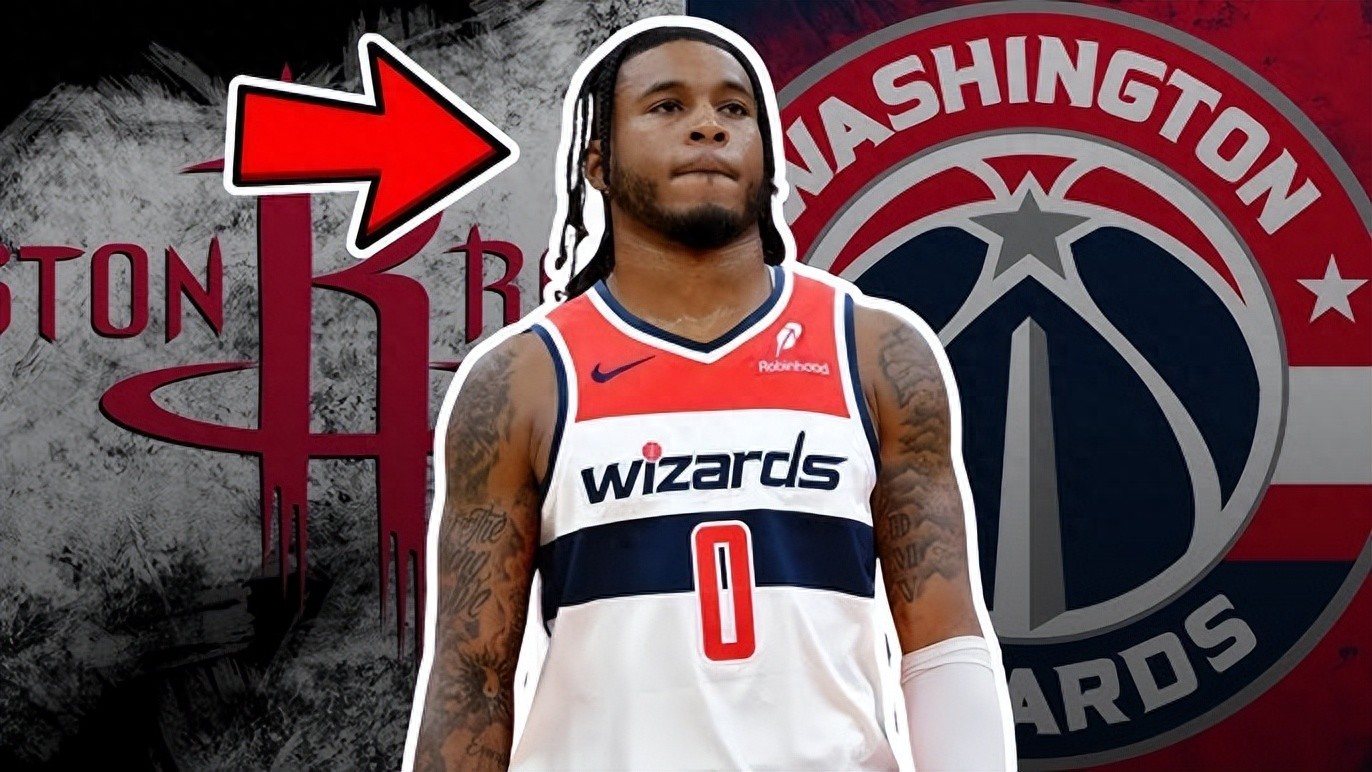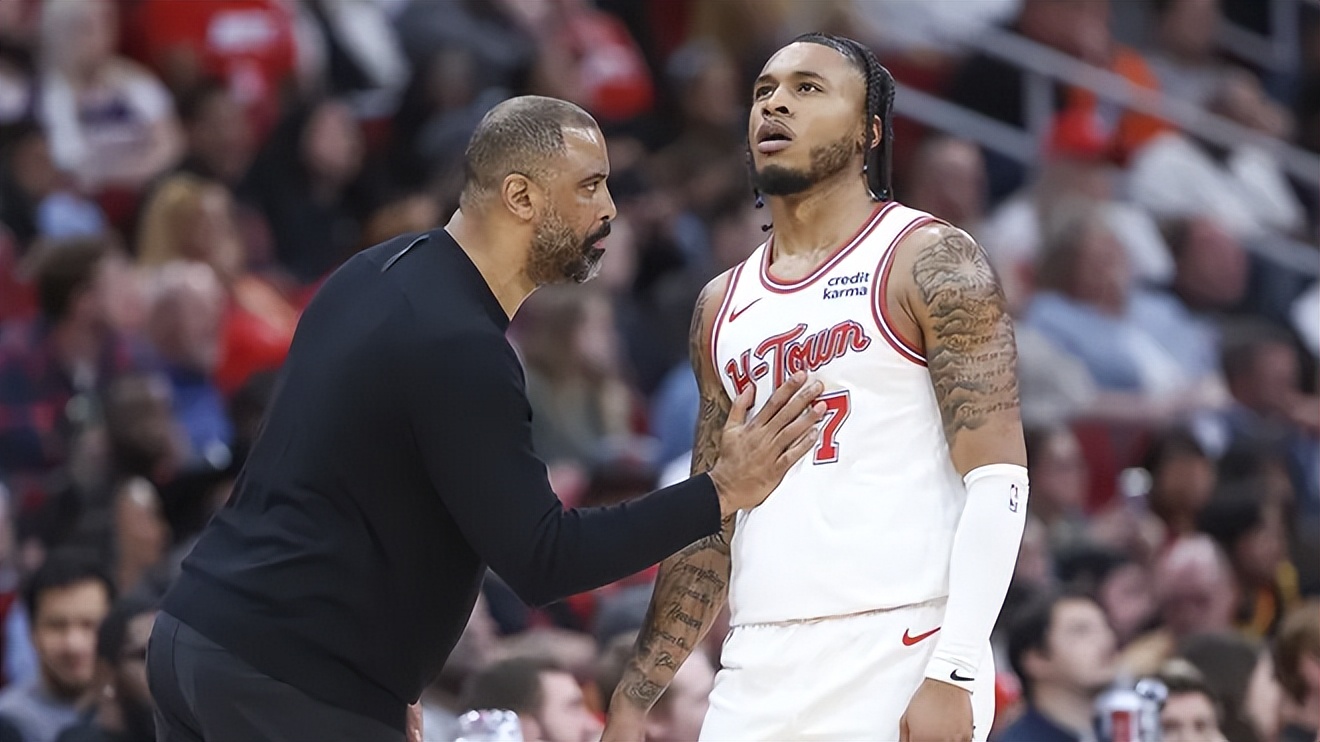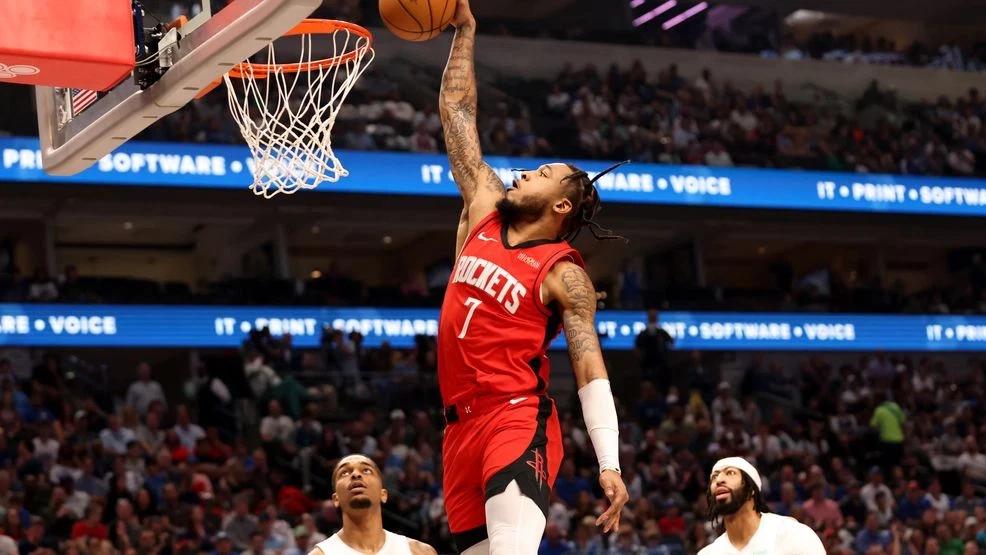Revealing the White Magic trade: The Rockets had hoped to exchange for a late first-round pick, but no team offered a similar deal.
On July 25, Beijing time, Rockets reporter Kelly Iko engaged with fans about the Whitmore trade. A fan stated, “Could the Rockets have exchanged Whitmore for more assets? For a former first-round pick who might average 20 points per game, receiving just a second-round pick feels like a bargain.” Iko's response and interpretation are as follows—


Earlier this month, Whitmore's tenure with the Rockets came to an end—he was traded to the Wizards in exchange for a second-round pick from the Bulls in 2026 and a second-round pick from the Kings in 2029. This situation reflects the current realities of the NBA and highlights the issue of player value depreciation.
Not long ago, Whitmore was widely predicted to be selected in the top ten, with all mock drafts suggesting he would at least be picked in the lottery and certainly not fall to the 20th pick. Although it’s not entirely impossible to regain external value over time, the collaboration between Whitmore and the Rockets did not go as smoothly as both parties initially hoped. The potential of this 21-year-old player,became a double-edged sword as his time with the Rockets extended, and he was excluded from head coach Udoka's rotation.

The team's management is certainly aware that Whitmore has potential in the right environment—various advanced analytics suggest he could become an impactful scorer. However, the challenge for Whitmore and ultimately for the Rockets lies in aligning the search for the “right environment” with the team’s evolving timeline. Towards the end of the season, discussions took place about how to make a mutually beneficial decision, whether to reintegrate him into the team or trade him to a team where he could get playing time.
According to team insiders, on draft night, the Rockets attempted to trade Whitmore for a late first-round pick, but other teams were unwilling to make a deal at that price point.The Rockets valued Whitmore higher than the consensus in the league, which accelerated the trade process, and the addition of Kevin Durant further complicated this process. Led by general manager Rafael Stone, the Rockets' front office worked closely with Whitmore's agent team at WME (Bill Duffy and Joe Branch) to find the best solution for both parties—one that would yield decent returns while allowing Whitmore to join a team interested in him that could provide playing time.

At that time, several other teams had made offers involving second-round picks for Whitmore, and the Rockets could have easily traded him to any of those teams. However, Whitmore's agent team prioritized the player's development and did not want a repeat of the past two seasons. Ultimately, the Rockets chose a destination close to his home (Whitmore attended high school in Severn, Maryland, about 25 miles from Washington), and that team was in a rebuilding phase, aligning with his current goals. This was the best deal that could be reached at the time.
Perhaps during the season, the Rockets could have received more for Whitmore, but this would have required him to force his way into Udoka's rotation.However, given the team's depth at the time, this seemed unlikely.


Wonderfulshortvideo
Ja tough chasedown rejection 🏃 🚫


Shai Gilgeous-Alexander joins Wilt Chamberlain (3x) as the only players in NBA history to total 40+ pts, 10+ ast, and 5+ reb in a game on at least 80% shooting from the field 📈 💪


🤩A legendary London crossover w/ @marcelotwelve 🇧🇷


Giannis jams it through traffic 🔥


SGA gets inside for 2️⃣, putting him at 40pts on the night ❗️


Great @Charlotte Hornets sequence 🏀


DUNK OF THE YEAR⁉️⁉️⁉️








 Links
Links
 Contact
Contact
 App
App


